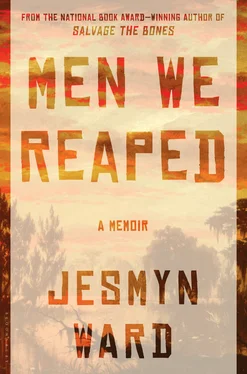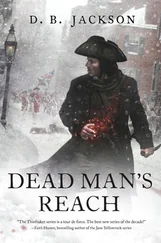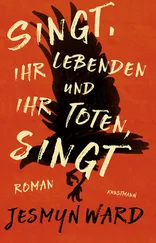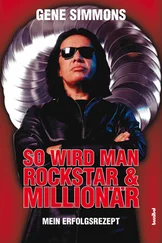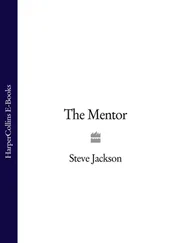My father and mother packed all of their possessions into their cars, a station wagon and a lowrider Riviera, and we made the long drive down California to L.A. on I-5, then crossed the desert Southwest on I-10. Somewhere in Arizona, my mother, big with my brother, walked into a grocery store and fainted. Our cars had no air-conditioning, yet she still drove those twenty-three hundred miles, her mouth set, my brother large and kicking in her stomach, his feet separated from the metal link of the Riviera’s chain steering wheel by the thin balloon of her fat and skin, windows down, wind blowing. I lay curled in the passenger seat in that car. As my mother drove through the burning desert, I slept, dreaming burning dreams. We sped through the long, seemingly endless stretch of Texas to the blooming green of Louisiana, and finally to DeLisle: home.
One day my brother wasn’t there, and the next day he was. He was born at Memorial Hospital in Gulfport, Mississippi. He was yellow and fat, his eyes large and liquid. His mouth gaped with gums. Sometimes my mother let me sit in a chair and hold him, his body stretching from my shoulder down and across my legs. I remember snippets of him as a baby, but not enough to grow him from infant to toddler in the narrative of his life. Joshua was born on time at nine months, but he wasn’t an easy delivery. My mother says he was born looking at a sky he could not yet see: sunny-side up, the doctor called it. The doctor turned Joshua facedown in my mother’s womb, three times. Every time, my mother said, she felt him turning to face the world again, as if he knew from the first that he wanted to see for himself. He was a beautiful baby: sandy skin, dark brown hair that later fell out and grew in blond. One day he isn’t there, and the next day he is. And just like that, I’m his big sister.
Once home, we moved often. We lived in a small white two-bedroom house in Pass Christian, but our life there is fuzzy in my memory. We then moved to a small blue house, this one a three-bedroom, built on my great-grandmother Ellen’s land in DeLisle where my father had played as a child and lost his eye. The house was built on cinder blocks, so the steps seemed impossibly high to me, and it was in a corner of the field. The field seemed immense. Mother Ellen’s house, small and faded gray, sat three hundred yards away, and the woods bordering the field clung closely to the back and sides of the house. There was a small chicken coop under the trees behind our house, and my father put two dog houses out on the other side for our dogs: one a black pit bull called Home-boy, and the other a short white pit bull mix called Mr. Cool.
I grew taller. My mother combed my hair up into multiple pigtails, secured them with large plastic bobs we called knockers. When I slept at night, they dug into my scalp. By the time I was five, my brother was three, and he came up to my waist. He wanted us to be a team, but when my mother had somewhere to go and my father stayed home and watched us, I left my brother and walked up the long drive that led to the road and played with my cousin Farrah. We played house and snuck to watch TV under the curtain that her father tacked in the doorway between the kitchen and the living room. Sometimes we played in the field that separated our houses, and one such day my brother came looking for me. He could walk easily now, and his blond afro bloomed. He wore a diaper and nothing else. He walked from one end of the railless front porch to the other, looking off into the grass. He stopped at the edge of the steps, turned around, angled one leg behind him until he found the top step, and then slid the rest of the way down so he stood on that step before turning in a circle to face the yard again.
“Mimi!” Joshua called.
I ducked lower so that only my eyes showed over the brick. I watched him. I did not want to call back, to have him come out into the yard, to have to take care of him instead of playing my game.
“Mimi!” Josh yelled.
He was so skinny, only his belly round as a ball. I did not say anything. He looked out in wonder over the yard, which must have seemed even larger to him than it did to me: it was a vast stretch of overgrown grass, and then those silent houses in the murky distance where his sister had disappeared.
My father slammed out of the front door. He was in shorts and nothing else. He had probably been asleep. He grabbed my brother by one arm, yanked him so he dangled in the air, and began whipping him.
“Boy! What I told you about going outside by yourself!”
My brother wailed, turning in circles like a sinker on a fishing line. My father’s hand whacked my brother’s diaper again and again, and I was afraid. I’d seldom seen my father angry, violent. I could not understand why Daddy was so upset with Joshua, could not understand what lesson my father was trying to teach my brother. I could not understand why Joshua dangled like a baby doll. And even today, that whipping he received feels like my fault. I’m still ashamed that I did not step out of that dense grass, that I did not climb those steps and grab his hand and lead him down them as an elder sister should, that I did not say: Here I am, brother. I’m here .
My father was not usually quick-tempered. He dealt with me mostly with forbearance and tenderness; he never whipped me. But he whipped my brother. He was stricter with him. With Joshua, my father’s patience was thin. There was no room for error in disciplining my brother, my father thought, because my brother was a boy. A son. A child who would be harder pressed to be a fighter, even more than the girl who’d been born early with the strong heart. My brother would have to be stronger than that. My brother would have to grow up and be a Black man in the South. My brother would have to fight in ways that I would not. Perhaps my father dreamed about the men in his family who died young in all the wrong ways, and this forced his hand when he woke to my brother standing next to my parents’ bed: pink-mouthed and grinning, green to the world, innocent.
When he wasn’t disciplining Joshua, my father was playful. When my mother left us home with him one evening, after he’d had a long day of work, my father covered himself with a blanket and crouched in the middle of the mattress. Joshua and I clutched each other. We skittered around the corners of the room as my father scuttled from side to side under the blanket. He circled the bed, following us, making strange guttural noises. Joshua and I laughed. We were breathless. We tiptoed closer to the bed, and my father swiped an arm out, a great knuckle-scarred claw, and we shrieked, the joy and terror rising in our throats, almost choking us. We darted away. My father played with us until we grew frazzled in the hot room. The sweat ran down our small bodies, our hair alive on our heads, standing in dense halos. At the end of the night, my father snatched us both under the covers with him and tickled us. We yelled for mercy.
On weekday mornings before my father went to work at the glass factory in Gulfport, the family would have breakfast together. My father would turn up the radio in the kitchen. It was 1982 and my mother was pregnant with my sister Nerissa. New Edition crooned; Joshua and I loved New Edition. My father would grab my hand, and then he’d grab Joshua’s, and I’d grab Joshua’s small moist palm in my own, and we’d dance in a ring in the middle of the kitchen. My mother shook her head at us, smiled, waved my father away when he tried to get her to dance with him. She would have been feeling pressure then as her family grew, as my father continued to cheat and plead his innocence and devotion and cheat more. She was afraid of what she saw on the horizon. She could not dance in the kitchen. She fried our eggs sunny side up, and as a family, we sat at the table and ate.
Читать дальше
